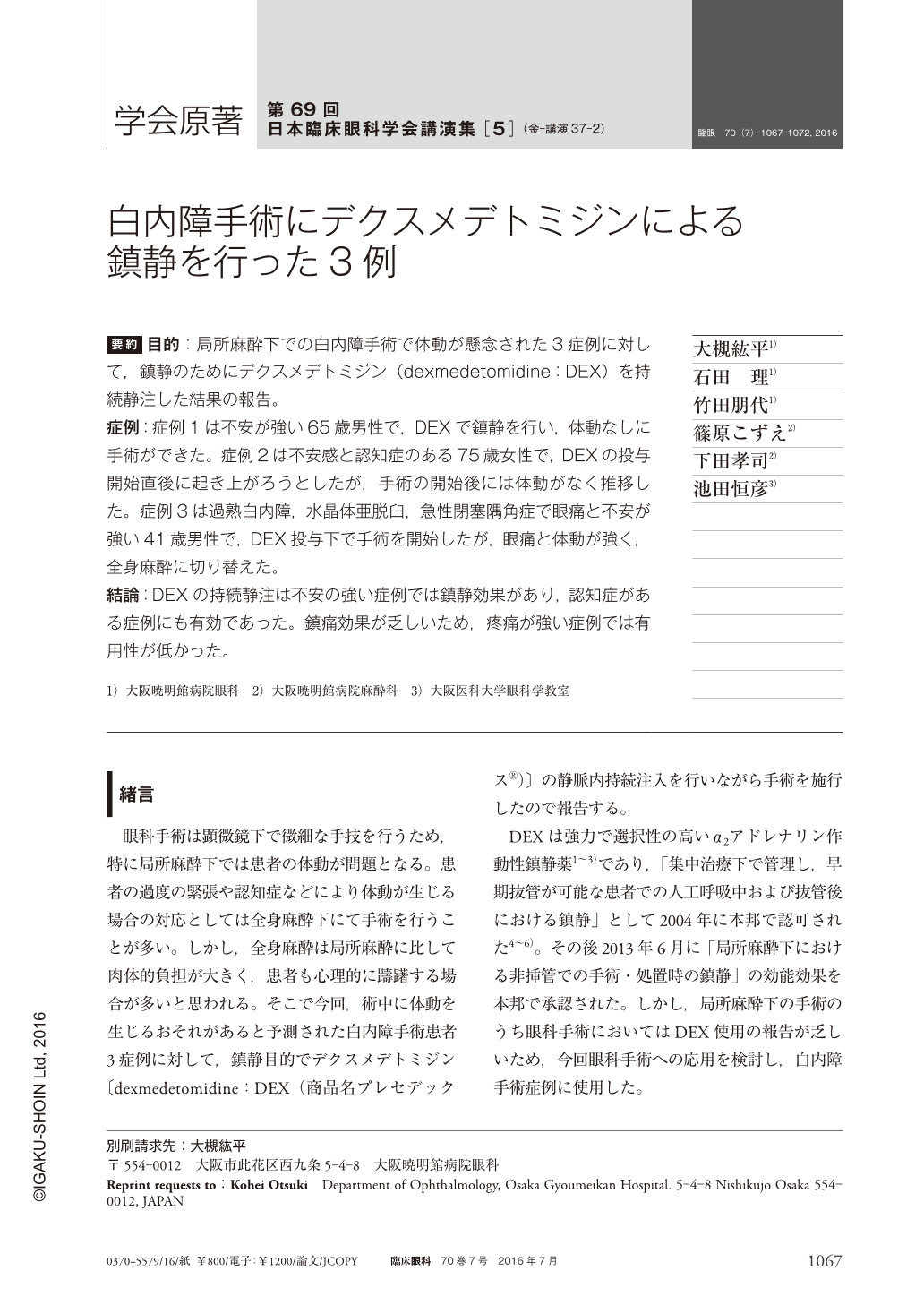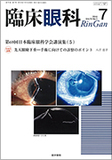Japanese
English
- 有料閲覧
- Abstract 文献概要
- 1ページ目 Look Inside
- 参考文献 Reference
要約 目的:局所麻酔下での白内障手術で体動が懸念された3症例に対して,鎮静のためにデクスメデトミジン(dexmedetomidine:DEX)を持続静注した結果の報告。
症例:症例1は不安が強い65歳男性で,DEXで鎮静を行い,体動なしに手術ができた。症例2は不安感と認知症のある75歳女性で,DEXの投与開始直後に起き上がろうとしたが,手術の開始後には体動がなく推移した。症例3は過熟白内障,水晶体亜脱臼,急性閉塞隅角症で眼痛と不安が強い41歳男性で,DEX投与下で手術を開始したが,眼痛と体動が強く,全身麻酔に切り替えた。
結論:DEXの持続静注は不安の強い症例では鎮静効果があり,認知症がある症例にも有効であった。鎮痛効果が乏しいため,疼痛が強い症例では有用性が低かった。
Abstract Purpose: To report 3 cases who were suspected of body movement and who received cataract surgery under intravenous infusion of dexmedetomidine(DEX).
Cases: A 65-year-old male showed marked anxiety. Cataract surgery was performed without body movement under use of DEX. Another 75-year-old female showed anxiety and senile dementia. She tried to get up after start of intravenous DEX. Cataract surgery could be performed without body movement thereafter. The other 41-year-old male had hypermature cataract, subluxation of the lens, and acute chamber angle closure. He showed ocular pain and anxiety. Cataract surgery was started under DEX but had to be switched to general anesthesia after body movement due to ocular pain.
Conclusion: Intravenous DEX infusion induced sedation during cataract surgery in patients with anxiety or senile dementia. Its use was limited in a case with ocular pain.

Copyright © 2016, Igaku-Shoin Ltd. All rights reserved.


